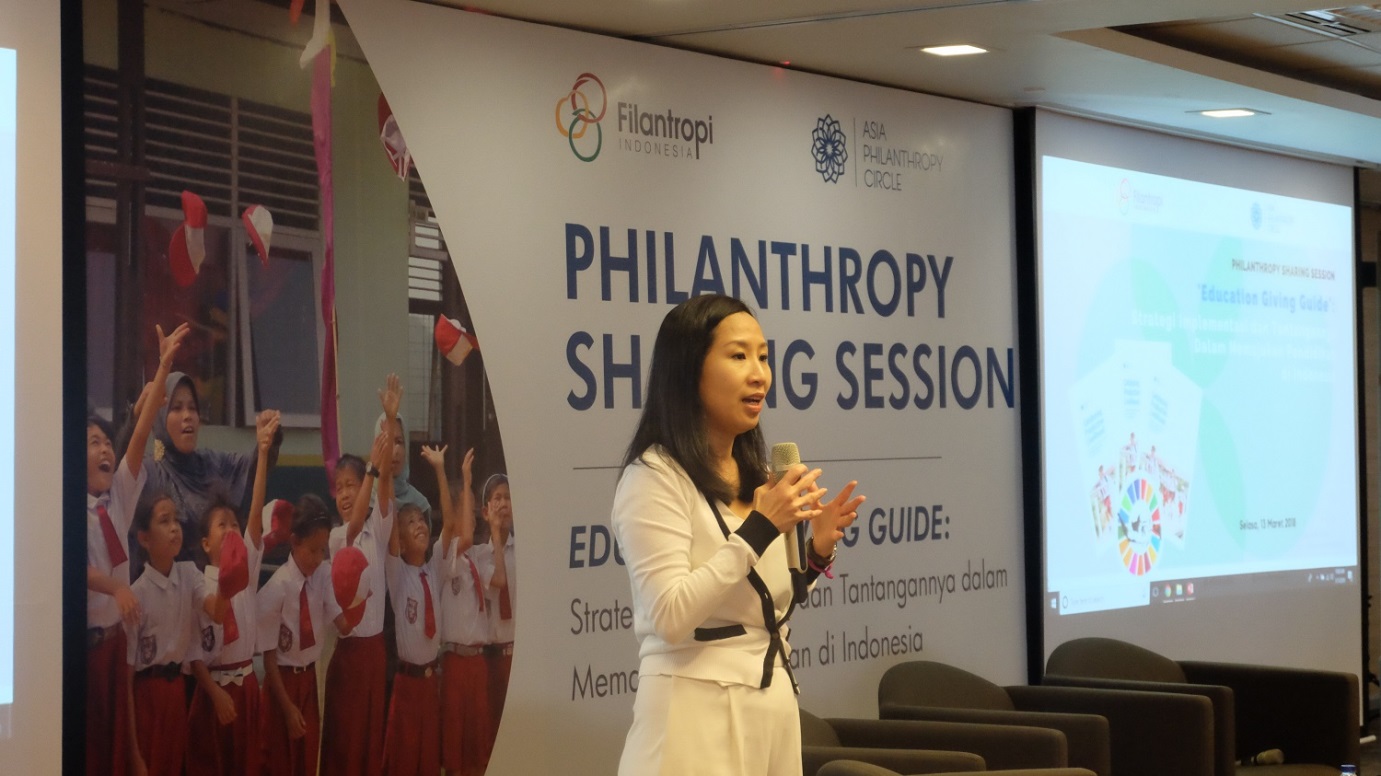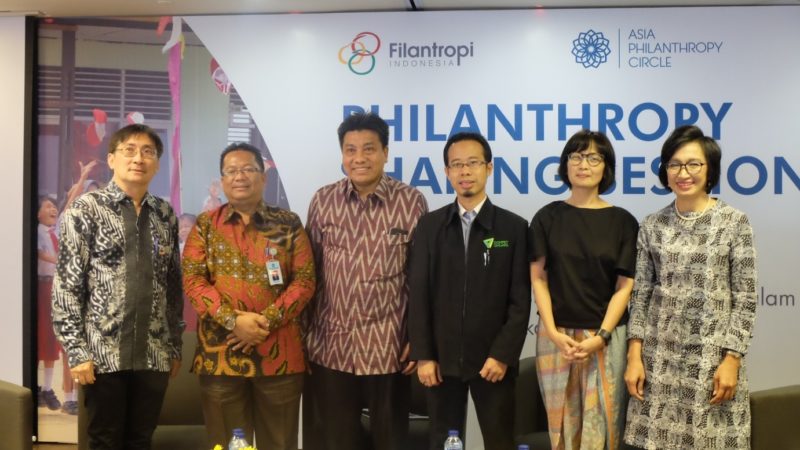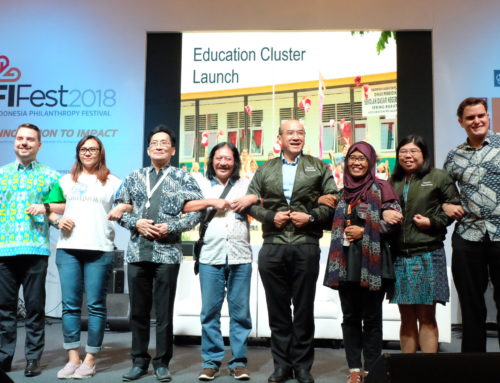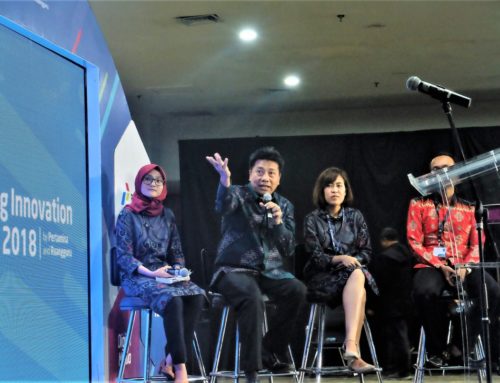On 13 March 2018, APC in collaboration with Filantropi Indonesia (FI), socialized the findings of the Education Giving Guide to the members of FI. Taking place at EV Hive co-working space, Plaza Kuningan, Jakarta, the event was attended by 70 participants from various organizations, private sector CSRs, and foundations. To name a few: Indofood, British Council Foundation, Rumah Zakat, JICA, Yayasan Danamon Peduli, Yayasan Adaro, and many more.

Stacey Choe, the Director of APC, was briefing the audience on the objective of the Giving Guide
During her opening remarks, Stacey Choe – the Director of APC Singapore Headquarters – shared on APC’s mission of catalyzing change in Asia through private action and collaborative philanthropy. The Education Giving Guide was an example how organizations can work together effectively. Timotheus Wanadjaja, widely known as Timo, talked about Filantropi Indonesia’s plan to form working clusters for each program area. Those belonged to Education cluster could immediately benefit from this Guide, while other clusters could start by conducting similar landscape studies in their respective areas.
The event also brought together 3 philanthropic actors and a representative from Ministry of Education on the discussion panel. Titie Sadarini from Coca-cola Foundation Indonesia; Muhammad Syafiie from Dompet Dhuafa; Sihol Aritonang from Tanoto Foundation; and Moch Abduh from Puspendik Balitbang were on stage. Moderated by Restu Pratiwi from Yayasan Danamon Peduli, each presented on their educational programs and how it created impact in Indonesian education.
For example, Titie Sadarini explained how Coca-cola Foundation Indonesia, through the generous funding from Gates Foundation and Telkom Indonesia, has now supported 692 district and village libraries in 18 provinces across Indonesia. The Perpustakaan Seru (PerpuSeru) program has not only provided access to knowledge, but also created job opportunities as well as increased the revenue of the SMEs through life skill trainings made available through the libraries. Titie suggested that Foundations measure and communicate their impacts. That was how the Foundation could attract funders, government, and library beneficiaries to collaborate and be part of the program.
Sihol Aritonang, the Head of Tanoto Foundation, who was heavily involved in the production of the Guide has also invited all philanthropic organizations to make good use of the report. Tanoto Foundation itself has adopted 3 out of 4 recommended areas of interventions, i.e. Teacher Quality, School Leadership, and Early Childhood Education and Development.
Dompet Dhuafa was most keen to involve the government in their program. This is because the strong synergy formed between community and government can help ensure the long-term sustainability of their programs. Lastly, Moch Abduh shared about government efforts to improve data transparency and accessibility. Neraca Pendidikan, for example, was available publicly for organizations to search for the education profile of a certain district.
Through this joint forum, APC and FI convened a few organizations to share their learnings to other education actors. Both hoped to foster stronger partnership amongst the philanthropic organizations in Indonesia. Of the philanthropists surveyed in the Education Giving Guide, 64% said there is room for improved collaboration. APC encourages philanthropists to consider various levels of collaboration – starting from providing open access to publications and tools, convening for knowledge sharing, to pooling of funding and resources – for broader and greater impact.





Leave A Comment
You must be logged in to post a comment.